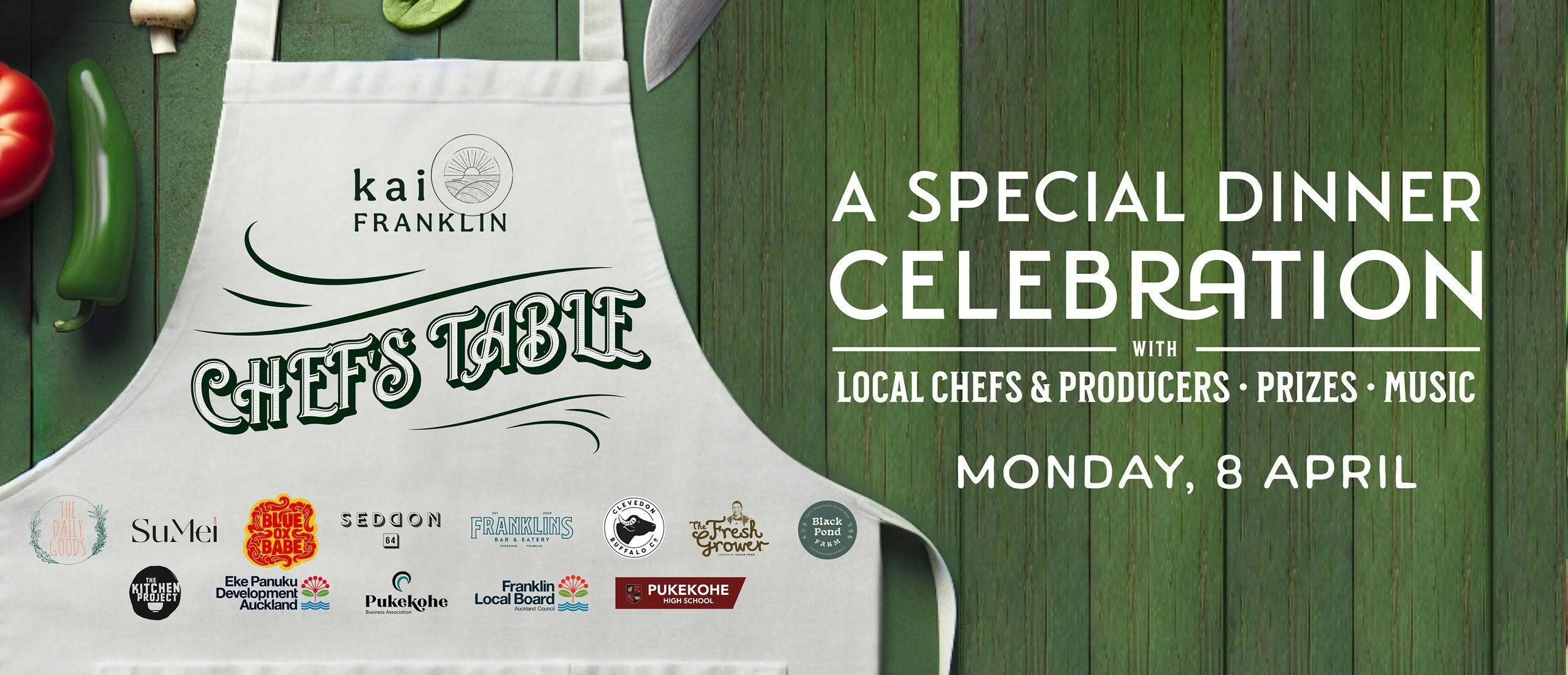
Kai Franklin Chefs Table
- Events

Nestled in Albert Park this month was the Whare Kai Pop-Up Store, an innovative collaboration between Auckland Council’s The Kitchen Project and Perfectly Imperfect, which provided fresh seasonal fruit and vegetables to students during exams.
As the doors swung open at the heritage Caretaker’s Cottage in Albert Park on the first day, a lively queue of more than 50 people eagerly awaited their turn to explore the treasure trove of fresh produce. The store offered two enticing options – a standard box for only $15 or a generous large box for $26. While students were the primary focus, the pop-up store drew visitors from across the city and was hugely popular, receiving unanimous praise from its customers.
Supplying the produce was Perfectly Imperfect, a social enterprise founded by Wendy Zhou, dedicated to minimising food waste. Perfectly good food that would otherwise go to waste found new homes, all while bolstering local growers and fostering a fair trade market.
Whare Kai was spearheaded by The Kitchen Project, an Auckland Council programme committed to nurturing local food and beverage businesses and helping food entrepreneurs grow. Inspired by the research of PhD student Dr Anthonia Uzoigwe, the pop-up store initiative looked to address some of the food challenges students are facing, often leading them to skip fresh fruits and veggies due to limited access and financial constraints.
Connie Clarkson, the manager of The Kitchen Project and the driving force behind the Whare Kai pop-up store shares, “The success of this pilot has exceeded our expectations and left us incredibly motivated. The overwhelming support from students and the community underscores the essential need for accessible fresh produce. We are thrilled to announce that plans for a Whare Kai store in 2024 are already in motion, and we eagerly anticipate continuing our positive impact on the community’s well-being.”
The Whare Kai initiative seamlessly aligns with the Council’s food priorities, championing sustainable food production, waste reduction, and the promotion of local, seasonal, and low-carbon food.